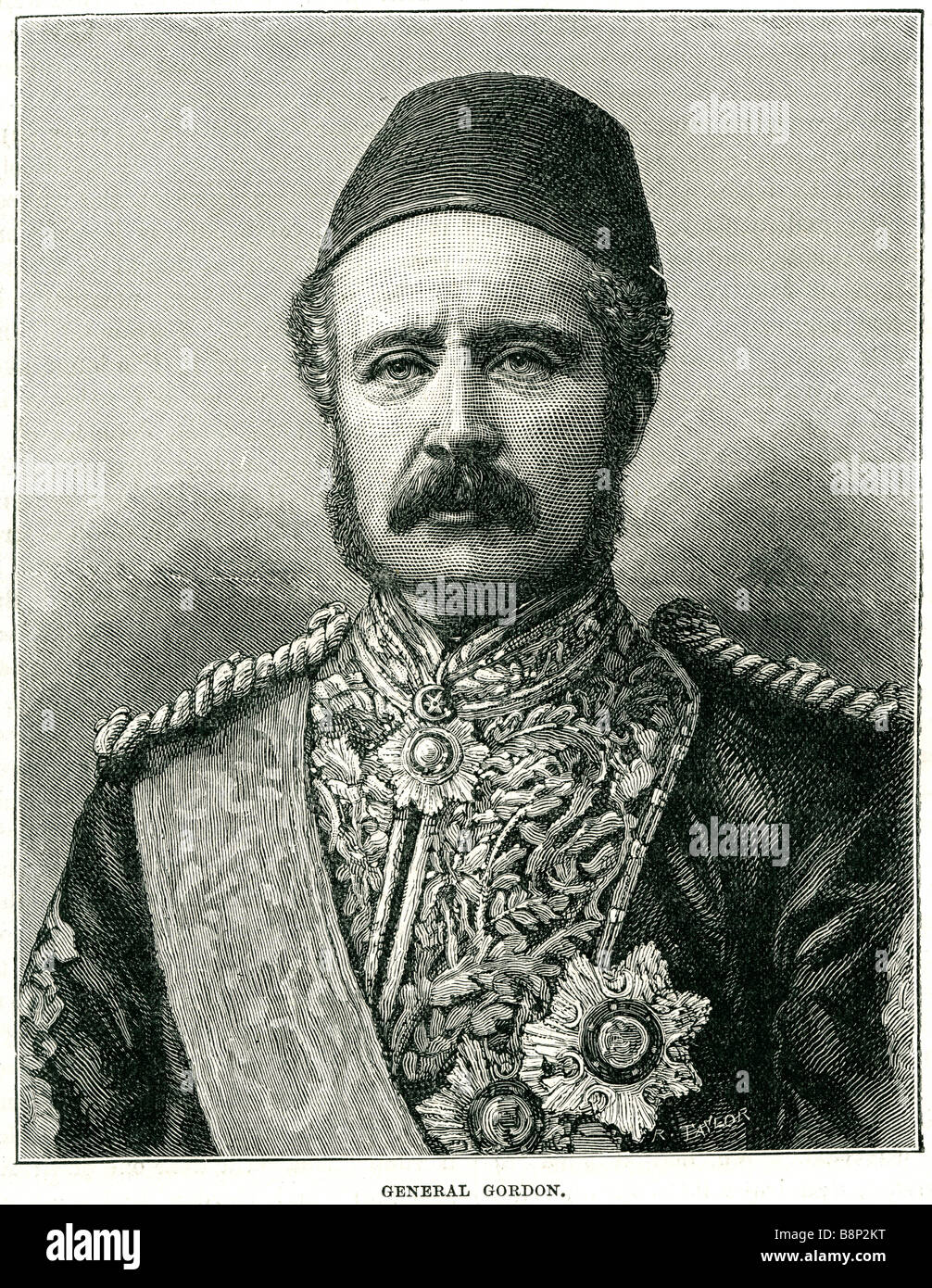Major-General Charles George Gordon 1833 1885

Image details
Contributor:
19th era / Alamy Stock PhotoImage ID:
B8P2KTFile size:
55.2 MB (7.2 MB Compressed download)Releases:
Model - no | Property - noDo I need a release?Dimensions:
3865 x 4990 px | 32.7 x 42.2 cm | 12.9 x 16.6 inches | 300dpiMore information:
Major-General Charles George Gordon, CB (28 January 1833 – 26 January 1885), known as Chinese Gordon, Gordon Pasha, and Gordon of Khartoum, was a British army officer and administrator. He is remembered for his campaigns in China and northern Africa. Gordon returned to Britain and commanded the Royal Engineers' efforts around Gravesend, Kent, the erection of forts for the defence of the River Thames. In October 1871, he was appointed British representative on the international commission to maintain the navigation of the mouth of the River Danube, with headquarters at Galatz. In 1872 Gordon was sent to inspect the British military cemeteries in the Crimea, and when passing through Constantinople he made the acquaintance of the prime minister of Egypt, who opened negotiations for Gordon to serve under the khedive Ismail Pasha. In 1873 Gordon received a definite offer from the khedive, which he accepted with the consent of the British government, and proceeded to Egypt early in 1874. Gordon was made a colonel in the Egyptian army. The Egyptian authorities had been extending their control southwards since the 1820s. An expedition was sent up the White Nile, under Sir Samuel Baker, which reached Khartoum in February 1870 and Gondokoro in June 1871. Baker met with great difficulties and managed little beyond establishing a few posts along the Nile. The khedive asked for Gordon to succeed Baker as governor of the region. After a short stay in Cairo, Gordon proceeded to Khartoum via Suakin and Berber. From Khartoum, he proceeded up the White Nile to Gondokoro. Gordon remained in the Gondokoro provinces until October 1876. He had succeeded in establishing a line of way stations from the Sobat confluence on the White Nile to the frontier of Uganda, where he proposed to open a route from Mombasa. In 1874 he built the station at Dufile on the Albert Nile to reassemble steamers carried there past rapids for the exploration of Lake Albert. Considerable progress was made in